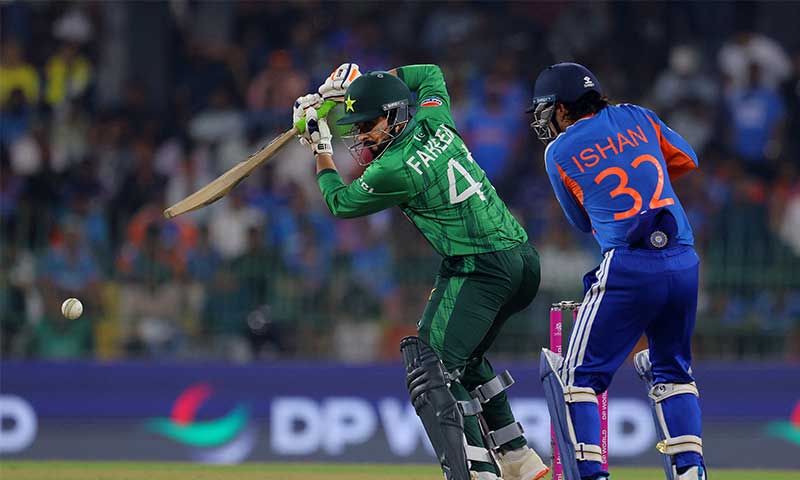- Web Desk
- Feb 16, 2026
Where the atom sleeps in the East
LAHORE: As the dust rises from the latest Israeli strike on Iranian nuclear facilities, now joined by USA’s unexpected military adventurism, global geopolitics is heating up to a dangerously familiar boil. While warmongers cheer on this open aggression as a strategic masterstroke, a growing wave of concerned voices is asking the right question: is America walking into yet another war it cannot win?
But for us in Pakistan, a more urgent question looms: if Iran’s nuclear sovereignty can be shattered under the guise of global security, is Pakistan’s nuclear deterrence next in line? The signs aren’t comforting. Let’s be blunt. The US has always had a curious double standard when it comes to nuclear programs. It turns a blind eye toward the arsenals of allies: the UK, France, Germany, and most recently, India. Washington’s silence on India’s long-range ballistic missiles is deafening. But when it comes to Iran, North Korea, and Pakistan, suddenly non-proliferation becomes a matter of existential urgency.
Over the years, America has blacklisted Chinese entities for allegedly supporting Pakistan’s missile program and imposed sanctions on Pakistani defense suppliers. Even a senior US official went so far as to claim Pakistan is developing missiles that could reach the US, a thinly veiled way of saying: “We’re worried these missiles can hit Israel.” This isn’t new. We’ve seen this pressure tactic before.
In the post-9/11 era, as militancy gripped Pakistan, the world whispered that our nuclear program might fall into the wrong hands. International headlines speculated, U.S. senators fumed, and the White House sent warnings wrapped in diplomacy. Pakistan’s leadership responded clearly and repeatedly: our nukes are in safe hands. From General Kiyani to Prime Minister Yusuf Raza Gilani, every power corridor in Pakistan made it clear that Pakistan is not Iraq or Afghanistan. And Washington knew it. Because when the US needed an exit strategy from Afghanistan or a partner to fight the Soviets in the ’80s, it had no issue trusting Pakistan that was working on its nuclear program. But when Pakistan starts diversifying partnerships with China through CPEC, with Russia through military drills, or with regional blocs, suddenly the nuclear card resurfaces as a threat.
Let’s not pretend this is just about Iran. The pattern is clear. Regime change, nuclear rollbacks, sanctions, isolation, these are the tools of the playbook used against nations unwilling to fall in line. The goal? Strategic control over energy routes, defense independence, and regional power balances. Now, if Israel and the U.S. succeed in dismantling Iran’s nuclear infrastructure and destabilizing its regime, who’s left as the only Muslim nuclear power? Pakistan.
We are not just a nuclear state, we are a successful one. Our defense capabilities recently stood firm against Indian aggression. Our deterrence strategy has teeth. And perhaps most critically, we’re not isolated, not militarily, not diplomatically, not ideologically.
Let’s be clear: Israel’s strikes on Iranian territory are not just a problem for Tehran. They signal a shift: the normalizing of preventive aggression in the name of global peace. It sets a precedent that powerful states can decide who gets to be nuclear, who gets to resist, and who gets to fall. Pakistan cannot afford to ignore this precedent. Iran’s airspace is now dominated by Israeli drones. Indian agents working for Israel have been arrested in Iran. This triangle India-Israel-US is evolving, and we must not underestimate its strategic intentions.
The answer lies somewhere between diplomatic maturity and national integrity. There have been whispers of backchannel diplomacy with Israel, delegations visiting Tel Aviv, even Netanyahu’s neutral comments about Pakistan. But public opinion in Pakistan remains deeply against Israel’s actions in Gaza and now Iran. At the same time, Pakistan cannot afford to entangle itself in foreign wars, especially not as a logistics partner for US aggression on Iran. Our leadership must reaffirm the security and responsibility of our nuclear program without ever apologizing for its necessity. We must balance our relations with the U.S., China, Gulf countries, and Iran through calculated diplomacy and not performative alignment. And we must call out the global double standards that demonize some nuclear programs while legitimizing others.
Pakistan is not Iran. Our nuclear program is not vulnerable, our society is not as closed, and our power corridors: bureaucratic, military, and diplomatic have far more at stake globally. But complacency is dangerous. Iran may be today’s target. But if this nuclear narrative continues unchecked, tomorrow it could be Pakistan’s sovereignty on trial. And this time, we must not let diplomacy be an afterthought. It must be our frontline.
Because in a world where nuclear power is only safe when it’s Western or obedient, Pakistan must remind the world we are neither, and we’re not apologizing for it.






